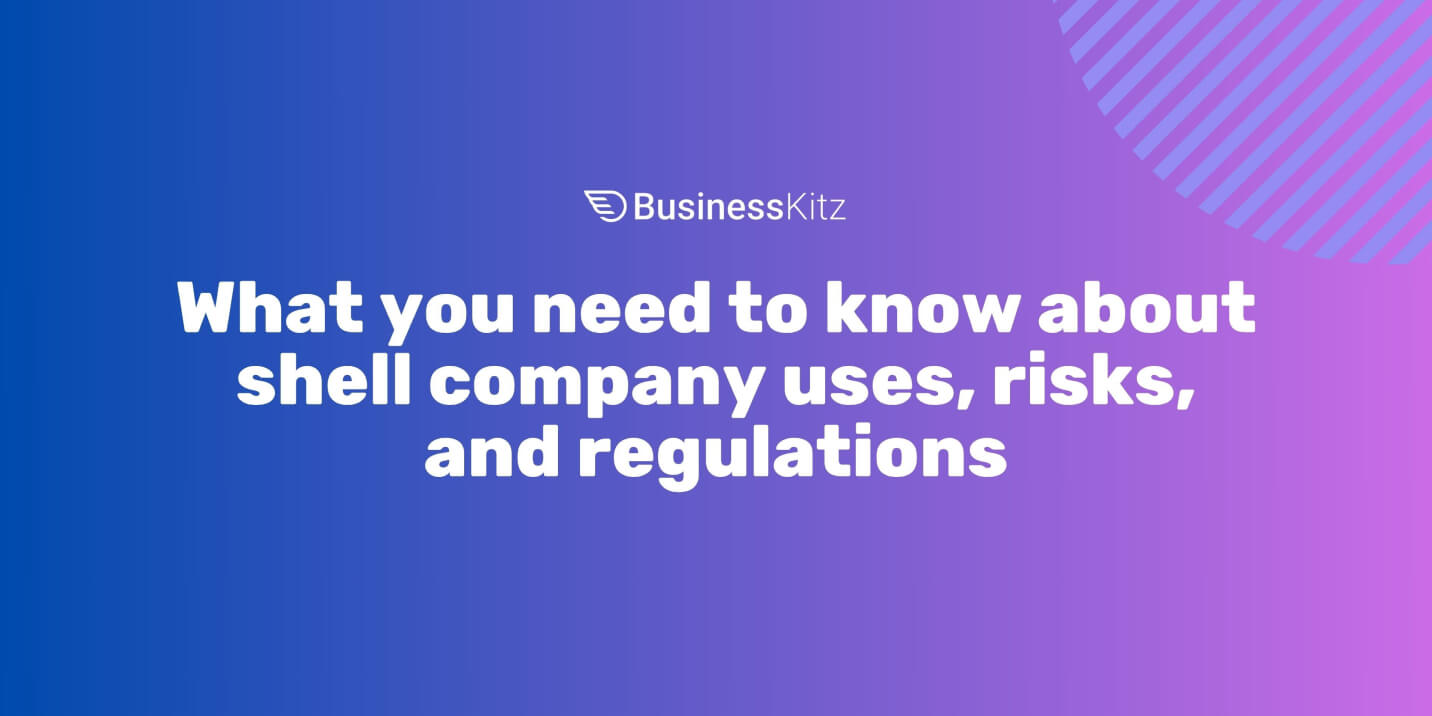
We've helped businesses save $55m with our all-in-one platform. Get instant access to this template and 115+ others, plus AI-powered document creation, starting completely free.
Understanding how a shell company works is essential for Australian businesses and individuals. These entities typically have no operations or significant assets but can play a role in asset management, tax planning, and structuring transactions. While they offer legitimate benefits, misuse can lead to money laundering and tax evasion risks. This guide explains how to use shell companies effectively while complying with Australian laws.
A shell company is a business entity with no active operations or significant assets. These entities exist primarily on paper and are often used for holding assets, managing transactions, or structuring ventures. While they can provide legitimate benefits, shell companies also carry risks, such as being linked to financial crimes like money laundering and tax evasion. Businesses must comply with Australian laws and prioritise transparency to use shell companies responsibly.
[ez-toc]

Shell companies play an important role in legal and financial activities. In Australia, they are often used for legitimate purposes such as protecting assets, simplifying ownership structures, or managing tax obligations. However, these entities can also be misused for financial crimes like hiding illicit funds or avoiding tax.
Adhering to Australian regulations ensures businesses can make use of the legitimate benefits of shell companies while avoiding risks. Understanding their dual nature—as tools for lawful purposes or avenues for misuse—is vital for responsible management.
Shell companies impact both legitimate business activities and efforts to prevent financial crime. For Australian businesses, they offer flexibility in structuring and holding assets. However, their misuse can harm reputations, lead to regulatory scrutiny, and result in severe legal consequences.
By following these insights, businesses can safely leverage shell companies for asset management, structuring, or creating new ventures, while avoiding misuse or legal issues.
Shell companies are unique entities with specific characteristics that set them apart from active businesses. While they can serve practical purposes, their structure and use often raise questions.
Shell companies operate in various industries across Australia. Common examples include:
The following highlights the key differences:
FeatureShell CompanyActive BusinessOperationsMinimal or noneRegular and ongoingEmployeesOften noneDedicated workforcePurposeAsset holding, tax planningCommercial activitiesTransparencyOften obscuredClearly identifiable
Understanding these features helps businesses decide whether a shell company suits their needs. It also highlights the importance of compliance and transparency when using one in Australia.
Shell companies can serve several lawful purposes in Australia. When used correctly, they allow businesses to be flexible and efficient in achieving specific goals.
Using a shell company requires strict adherence to Australian laws. Businesses must engage legal and financial advisers to meet tax regulations, disclose ownership, and maintain accurate records. Professional guidance helps avoid potential risks and ensures compliance with all legal obligations.
Shell companies can be valuable tools for businesses when used responsibly. Compliance with regulations safeguards reputations and allows these entities to function effectively and lawfully.
Shell companies present significant risks, particularly when misused for illegal purposes. These risks can harm both businesses and the broader economy.
Businesses can identify and avoid risks by recognising red flags such as:
By following due diligence and Australian regulations, businesses can use shell companies lawfully while protecting their reputation and avoiding involvement in financial crime.

Australia has strict regulations to monitor and control the use of shell companies. These rules aim to prevent illegal activities and ensure transparency in business operations.
Businesses using shell companies must adhere to the following:
Compliance AreaShell CompanyActive BusinessBeneficial ownershipMandatory disclosureN/A or direct ownersReporting obligationsFocused on transactionsBroad operational reportingRegulatory oversightHighMedium
Strong regulations help detect and prevent illegal activities like money laundering and tax evasion. Businesses must meet these standards to avoid fines and ensure operations remain legal. Compliance with these rules protects reputations and builds trust with regulators and partners. By following the law, companies can use shell entities responsibly and effectively.

Shell companies can offer businesses flexibility and efficiency, but they must be used lawfully. Responsible use requires compliance with Australian laws and adherence to best practices.
Using shell companies responsibly protects your business from legal issues and reputational damage. It also ensures you meet obligations under Australian tax and corporate laws. Businesses that follow these steps can leverage the benefits of shell companies while avoiding risks. Responsible management fosters trust and long-term success in Australian and global markets.
Yes, shell companies are not illegal in Australia. However, their use must comply with strict regulations. Companies must register, disclose beneficial ownership, and follow reporting laws. Misuse for tax evasion, fraud, or terrorist financing is illegal.
Shell companies can offer privacy by separating personal and business ownership. However, privacy must not cross into secrecy or illegal practices. Laws require identification of true owners to prevent misuse.
Responsible use of shell companies involves meeting all compliance requirements. Businesses should disclose ownership, document the company’s purpose, and conduct all activities transparently. Seeking professional advice ensures lawful operations and protects against misuse. When managed responsibly, shell companies can support lawful goals like holding a bank account or securing a loan while maintaining full compliance with Australian laws.
The Panama Papers leak brought shell corporations into the spotlight. It revealed how some were used for tax avoidance, hiding illicit funds, and bypassing stringent regulations. The leak emphasised the need for transparency and legal verification in business activities.
Businesses use shell companies for legitimate reasons like asset protection, tax planning, or simplifying ownership. Some set up a shell company to manage intellectual property, hold real estate, or facilitate mergers. However, they can also be exploited to hide ownership or move funds to tax havens like the Cayman Islands or British Virgin Islands.
It is important to note that shell companies require compliance with Australia's laws. Businesses must follow due diligence, report financial activities, and ensure ownership transparency. This protects them from legal risks and builds trust with stakeholders.
Shelf companies are pre-registered businesses that remain dormant until purchased for use. On the other hand, Shell companies may hold assets or manage finances without significant operations. Both entities are commonly used, but for different purposes.
Shell companies carry significant risks, especially when misused for illegal activities like fraud, money laundering, or tax evasion. These entities have been highlighted in cases such as the Panama Papers, which exposed their role in secrecy and offshore financial schemes. To mitigate these risks, businesses must prioritise proper verification, conduct due diligence, and adhere to stringent Australian regulations. Compliance and transparency are key to avoiding misuse and protecting reputations.
Shell companies can serve important business roles, but they come with risks. They provide flexibility for asset management, tax planning, and structuring transactions. However, they can also be exploited for illegal purposes, like money laundering or tax evasion.
In Australia, strict regulations ensure transparency and prevent misuse. Businesses must disclose ownership, keep accurate records, and meet reporting obligations. Using a shell company responsibly requires legal advice and ethical practices.
If you need guidance, Business Kitz can help. We offer expert resources and secure document solutions to support compliance and streamline business operations. Visit Business Kitz today to ensure your business remains legal and efficient.
Copyright © 2025 Business Kitz 14312161